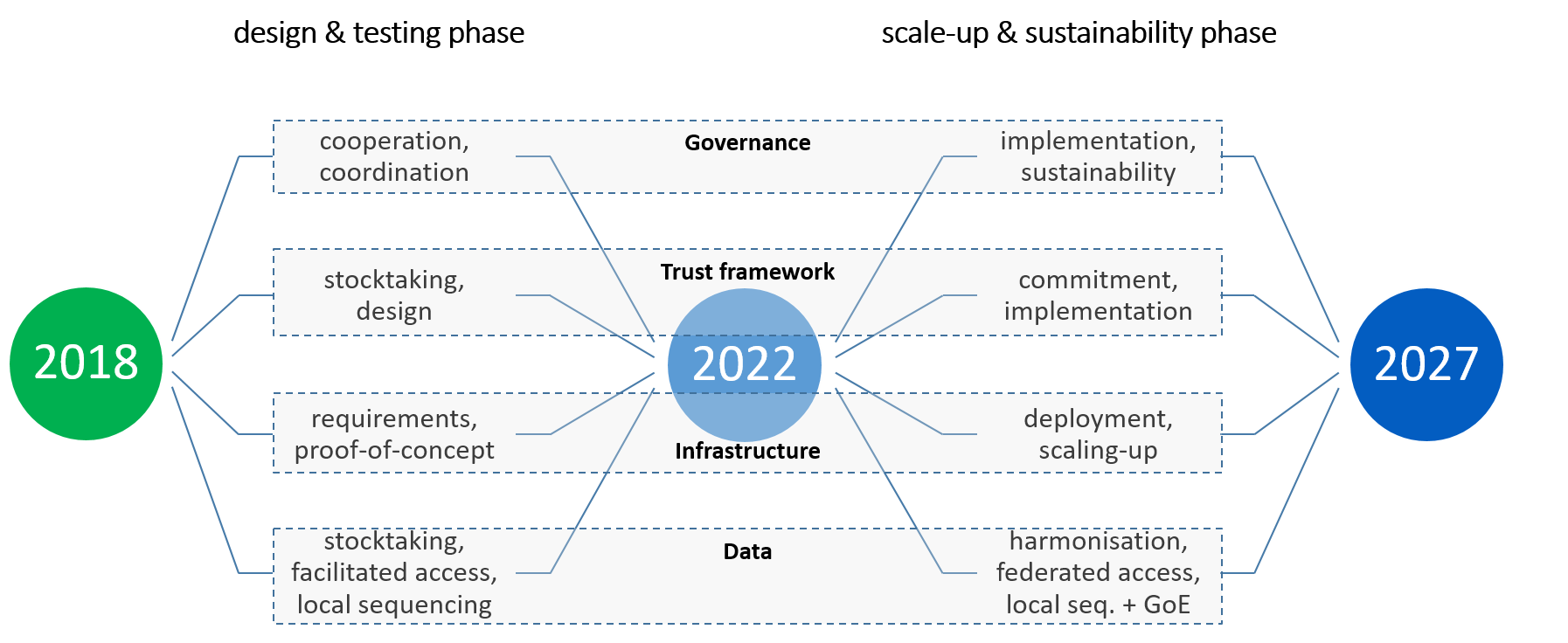Brazil is witnessing a revolution in digital finance and an increase in the number of customers joining it, through a comprehensive government-led reform campaign that intensifies the use of technology, focuses on customer needs, renews regulations, develops instant fund transfer applications, and protects its citizens from high interest rates and fraud.
Digital transformation is associated with facilitating daily needs, especially in terms of health and money. The extent of reliance on financial technology in a country is subject to many overlapping data, and while this technology is making huge leaps in countries such as the United States and China, its steps are still timid in other countries, such as Brazil.
Brazil suffers from development challenges in recent decades, as it is witnessing severe levels of poverty and inequality, and this is one of the reasons why Brazilians are moving away from banks, especially since their banking sector is one of the most profitable sectors in the world, where the top five banks control nearly 80% of the loan market. That has made banking very expensive, with consumers often paying triple digit interest rates. On top of that, physical bank branches are available in few and distant locations, keeping limited hours and notoriously long lines, making them difficult and timely to access.
Besides its own challenges, Brazil faces other more general challenges related to government policies and regulations that may hinder innovation and create barriers to new business and ideas or small businesses.
Because innovation is a necessity, Brazilian authorities and the private sector are determined to lead the fintech scene in Latin America, accounting for half the continent's share of investments in this area.
To this end, the government has embarked on a set of comprehensive measures on the regulatory framework for payments, taking advantage of the digital revolution that began more than a decade ago to intensify the use of technology and encourage entrepreneurship.
First, Brazil’s regulator ended the duopoly enjoyed by the dominant credit card acquirers in the country. By introducing competition and reducing the fees that retailers pay for credit and debit card transactions, savings were passed on to the consumer, ending a period of supernormal profit for the acquirers. The incumbent banks who owned the acquirers were then forced to look for ways to replace these profits and grow in a more consumer-friendly way.
In the next stage, Brazil’s Central Bank became responsible for regulating the payments industry with a mission to ensure that all payment card brands were accepted by all acquirers, as well as launching programmes to increase financial citizenship and offer more affordable credit.
The Central Bank then launched a law, which means adapting regulatory requirements to a company's size and complexity, so that authorities do not place a significant burden on small and uncomplicated financial institutions, so as not to restrict their competitiveness. This approach was followed by several facilities for fintech companies that eliminate the need for a banking intermediary.
Finally, the government launched Pix, an instant payments system operated by the Central Bank whereby consumers and merchants can send and receive money via a QR code to enter applications that will request information about the beneficiary's account and start the encrypted and round-the-clock transfer process, which it offers at a low cost compared to other options.
While the government and private sectors seek to design services that meet the needs of customers, they in turn have shown high enthusiasm and awareness in adopting innovative solutions. This is reflected in the completion of 70% of online banking services, and the accession of 16 million Brazilians into the financial system, according to official statistics.
At the current stage, Brazil's Central Bank announced the start of a digital currency pilot project, which will include buying and selling of federal public bonds among individuals - and its subsequent evaluation. The public use of the digital currency should begin at the end of 2024, after the completion of the testing phase.
As this journey continues, so do its challenges, most notably the creation of a formula for involving the various institutions of traditional and digital banks, financial technology companies and credit unions, with a variety of mechanisms, interests and organisational structures. This challenge the government has chosen to address by developing a detailed guidance manual that covers all the needs for the smooth operation of new financial options.
As for the second challenge, it was represented by the risk of data leaks resulting from the ignorance of many companies about digitisation, which increased security gaps, a problem that Brazil had already suffered from and led to the loss of nearly 40 billion dollars to Brazilians as a result of fraud. A challenge that provides an opportunity for start-ups to innovate protection solutions and modern tools.
The challenge of providing such services to all members of society remains, but the government is betting on its community, which has one of the highest Internet and smartphone usage rates in the world.
Across the world, there are more than 700 unicorns, and 12 of them are located in Brazil. That refers to start-ups whose capital exceeds one billion dollars due to the growth of their turnover regardless of their profitability, enabling them to carry out several rounds of funding and investment that raise their market value. If compared to China or the United States, the number of such companies may seem small, but they are the largest among Latin American countries.
The year 2021 witnessed a 66% increase in the number of digital bank account openings, with 85% of Brazilians having digital access to financial services, and this is the best pace of development in Brazil in decades.
Today, initiatives such as Pix offer seamless and secure experiences across industries. Brazil is arguably at the forefront of the Latin boom in financial inclusion, as the banking sector measures integrated with the digital revolution have increased competition, reduced bank fees and established an innovative financial system that suits the needs of citizens.
References:
- https://www.weforum.org/agenda/2022/05/brazilians-are-adopting-digital-payments-faster-than-anyone-else-what-lessons-can-we-learn/
- https://www.omfif.org/2023/01/brazil-is-undergoing-a-fintech-revolution/
- https://ibsintelligence.com/ibsi-news/3-brazilian-fintechs-revolutionising-the-financial-sector/
- https://www.forbes.com/sites/forbestechcouncil/2021/08/09/a-look-into-brazils-booming-fintech-scene/?sh=688992eb72b0
- https://www.zdnet.com/finance/banking/more-brazilians-are-banking-online-than-in-person-for-the-first-time/
- https://labsnews.com/en/articles/experts/perfect-storm-financial-inclusion-brazil/
- https://www.bcb.gov.br/en/financialstability/pix_en
- https://www.reuters.com/world/americas/brazil-announces-pilot-digital-currency-seeking-leverage-financial-services-2023-03-06/






